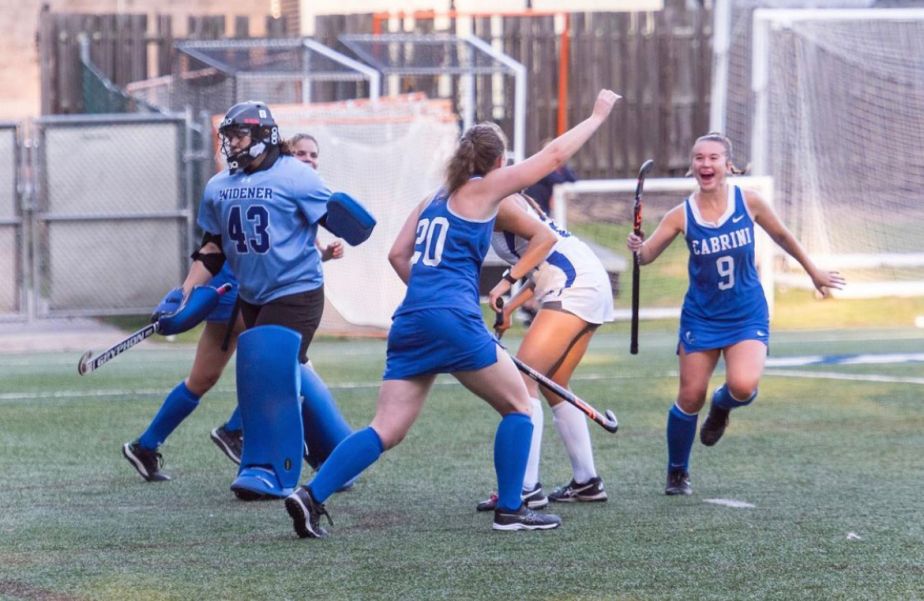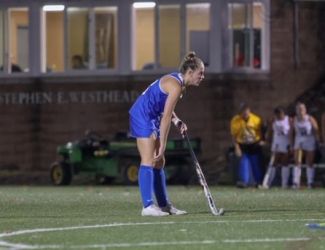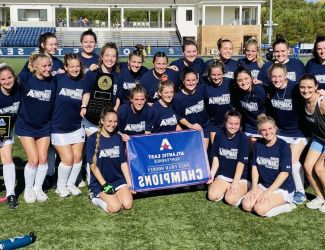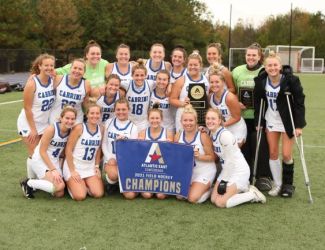Both Adrianna Jones, sophomore nursing major, and Daly Ewing, junior finance major, are members of Cabrini’s outstanding field hockey team. They are also very close with their mothers. However, over the last two years, the teammates needed to dig into the same grit and perseverance that brought them back-to-back Atlantic East Conference championships and two NCAA appearances after finding out their moms had cancer.
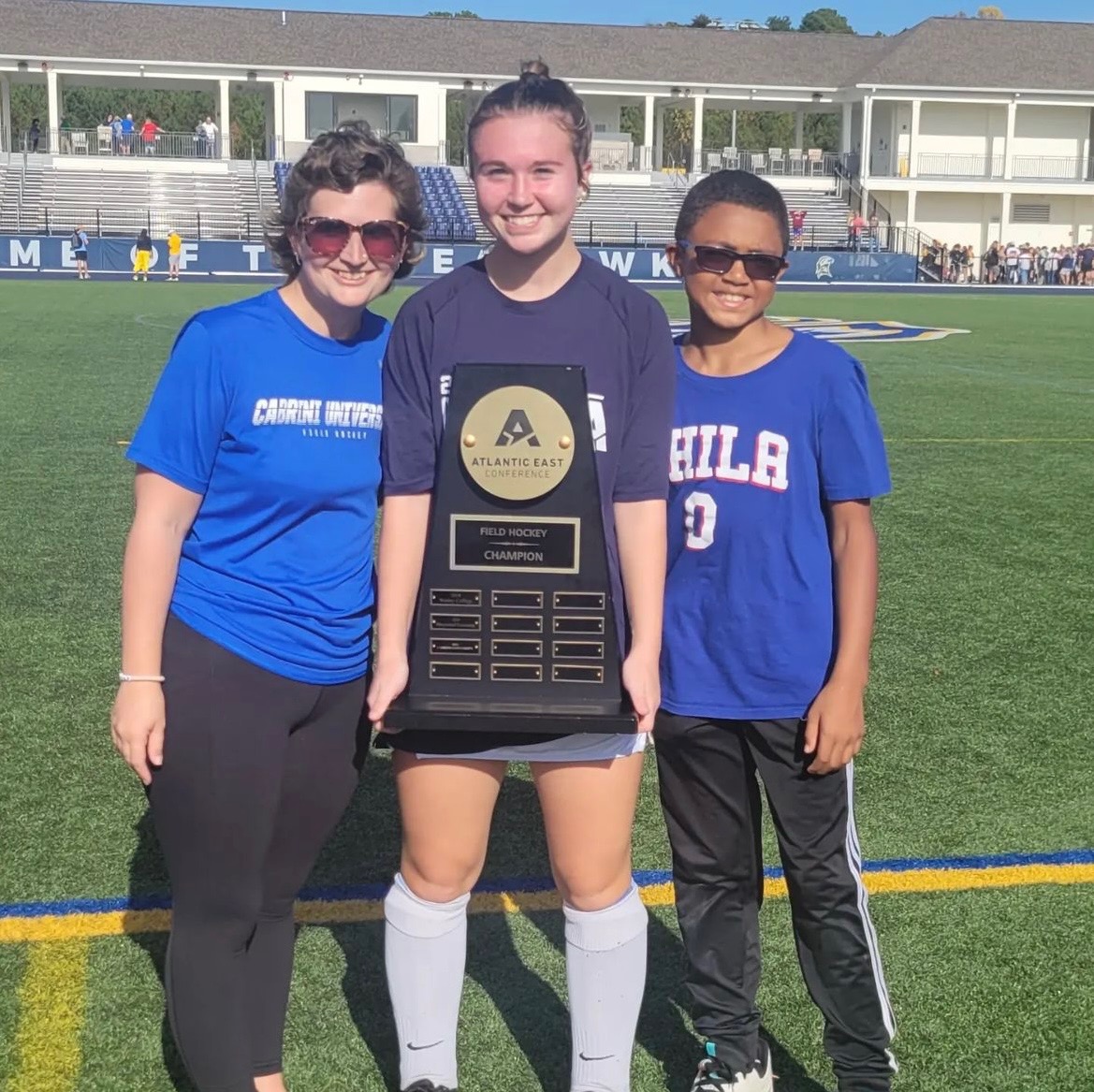
In October 2021, Jones found out her mother, Diane Jones, was diagnosed with an aggressive form of breast cancer. “She [Diane] is one of the most caring people and would do anything she can for someone in need … my mom is my best friend and I’m so happy to have her as my mom,” Jones said. As the mother of six children, three biological and three adopted through foster care, Diane’s strength has been inspirational to all she has encountered.
“She started chemo right away and she had a double mastectomy,” said Jones. While Diane is still taking oral chemotherapy, she is improving.
In September 2022, Ewing’s mom, Maura Ewing, told Daly she was diagnosed with an early form of endometrial cancer. “My mom is someone I strive to emulate. She is the strongest person I have ever known,” Ewing said, “She is kind, intelligent, caring, and never afraid to speak her mind … She never fails to make her children feel special and support us in whatever we do. If you come to a field hockey game you’ll definitely know she’s there. She’s the loudest voice in the crowd and she fully owns it.”
Ewing credits her value of family to Maura. “My family is my whole world, and she has taught me the importance and value of family,” Ewing said, “[Maura] is everything, I would be nowhere without her,” Ewing said. After a hysterectomy, Maura is cancer free.
Jones and Ewing were both utterly shocked to hear these diagnoses and unaware of the toll it would take on their lives as college student athletes.
Jones said, “As a student, you kind of know what you have to do, it is already laid out for you. But as an athlete, it comes down to a mental space when you’re playing. So, knowing that and still having to go to practice … your mind was on other things.”
“It always felt like there was something nagging in the back of my mind, and I remember in one game I was like, ‘I played terrible,’ and I felt like I was playing with 200 pounds on my back,” Ewing said.
“Ohana” means family
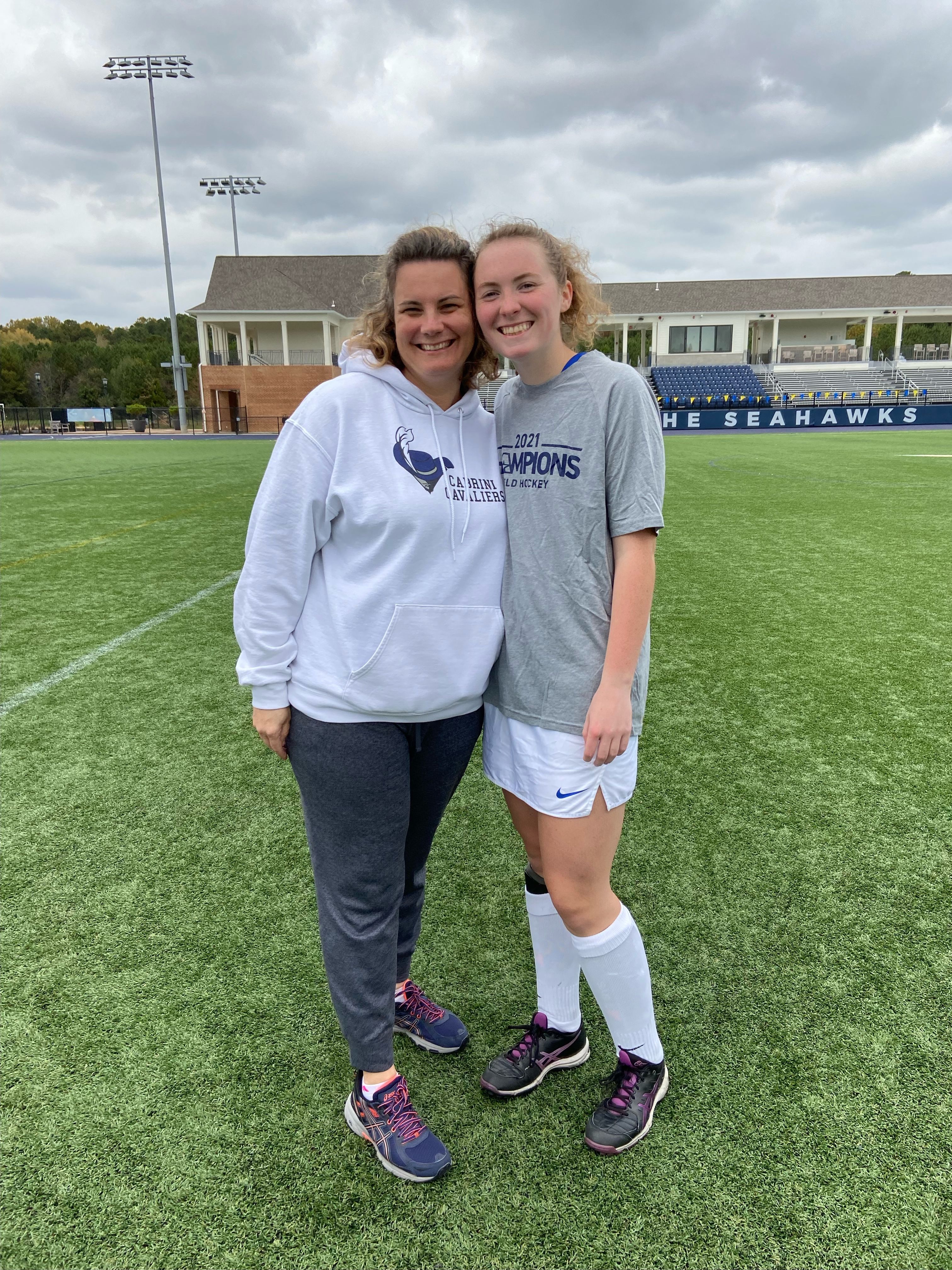
During these hard times, Jones and Ewing both saw field hockey as an outlet. Being able to play field hockey allowed them to take their minds off things for a while. “The coaches were so helpful, so understanding, always checking up, constantly [asking], ‘Hey, how are you?’ or ‘What’s going on?’ And my teammates, I love them more than anything in the world,” Ewing said.
The supportive culture of Cabrini’s field hockey team is recognized by many, including the coaching staff. “There is a real sense of community,” Jackie Neary, head coach of Cabrini’s field hockey and women’s lacrosse teams, said. As a coach of players facing such adversities, “It raises your empathy, and what I value most about it that I have seen in my 27 years at Cabrini is the grit and the resilience that these student athletes have when someone in their family is facing a diagnosis,” Neary said.
“It doesn’t surprise me how great A [Adrianna] and Daly are because when you meet their moms, you get it. The apple doesn’t fall far from the tree. They come from lovely families, and that’s what makes them so special,” Neary said.
“Daly and A are great examples of two young ladies that faced adversity this fall and turned it into something motivating and inspiring to all of us.”
Advice to all
There are countless stigmas surrounding athletes and “looking strong,” unfazed, and independent. Jones and Ewing want others to know the power of utilizing resources and asking for help.
“Don’t try to go through it alone, don’t be afraid to say what is going on in your life because going through it alone is only going to hurt yourself,” Jones said.
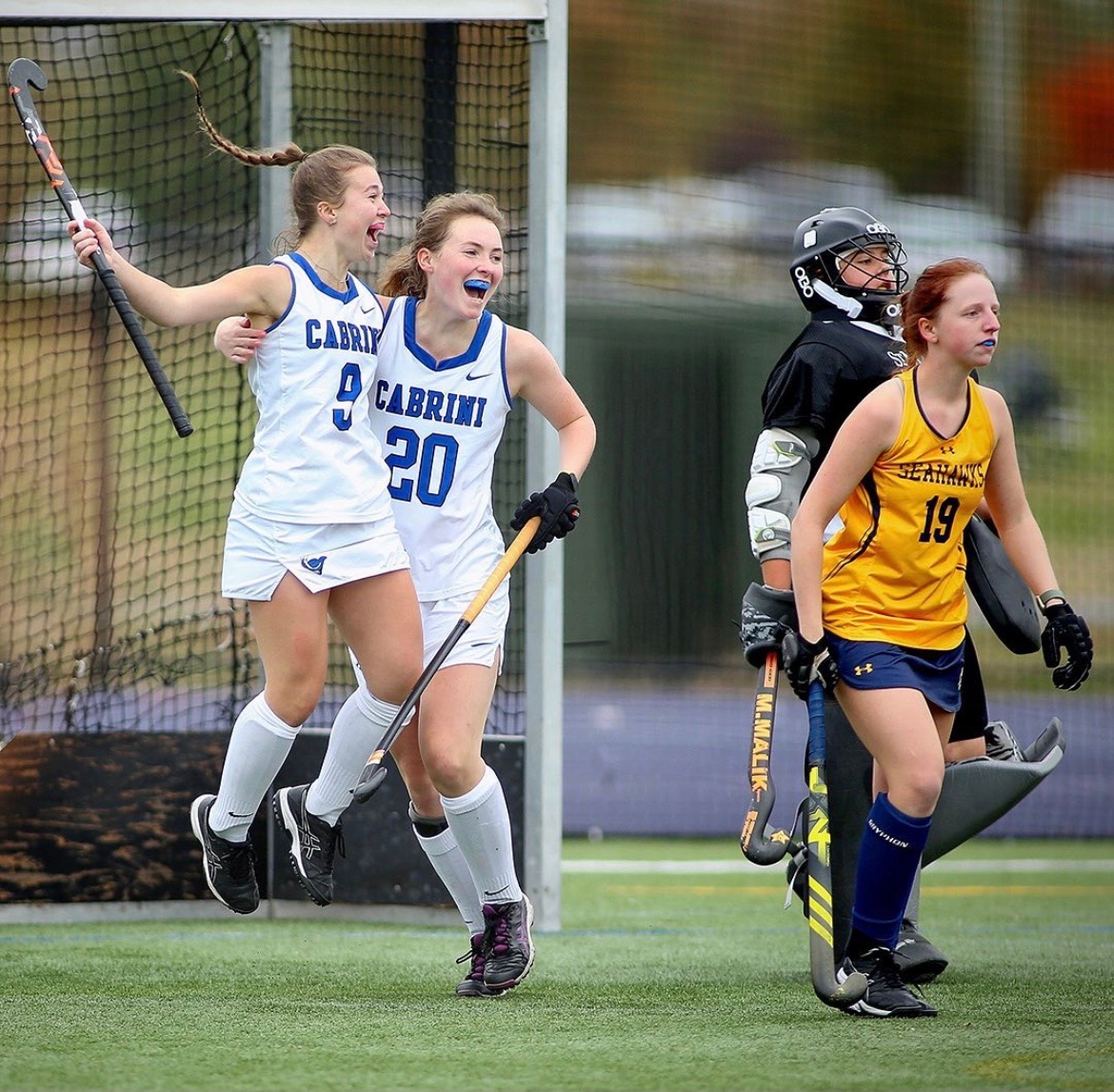
Ewing agreed and shared a similar message. “I didn’t tell people, and I was struggling. And that one game, I just broke down and started crying and saying, ‘I can’t do this.’ And then I was like, ‘Why didn’t I tell anyone? I need help, so why didn’t I ask for it?’”
Jones and Ewing emphasized the benefits of speaking out when struggling. “Help is always there, it’s not embarrassing, no one is going to make fun of you. [Resources] are only going to help you feel better,” Ewing said.
Neary concurred. “You’ve got to talk, don’t try to shoulder the entire weight of whatever it might be that you’re facing. That’s the beauty of being a part of a team and a community, you can talk to people … have those honest conversations about what you are afraid of [and] what you’re hopeful for.”
Educating the community
In honor of breast cancer awareness month, Cabrini field hockey participated in Play4TheCure. On one game day in October, the team donated money to fund cancer research, and more importantly to coach Neary, to educate the community.
Players listen to a guest speaker each year and hear their personal experiences with cancer. “More important to me as a female is for my players to gain knowledge,” Neary said. “This year’s speaker talked about self-examinations … Something that is really great when you are sitting in a room with 24 girls [is] knowing that more than likely somebody is going to be touched by it [cancer], and if they have these unique stories that they are hearing every fall, I think it’s priceless.”
“[My goal] is more about the awareness than it is monetary,” Neary said.

